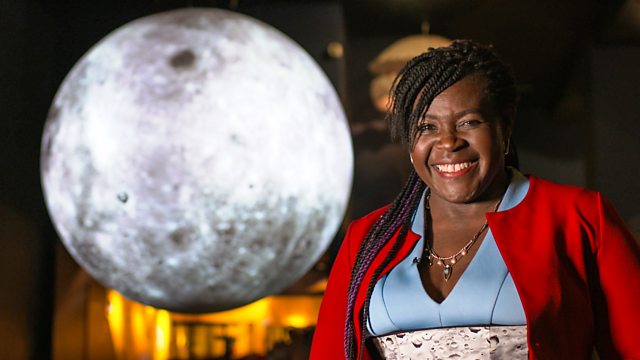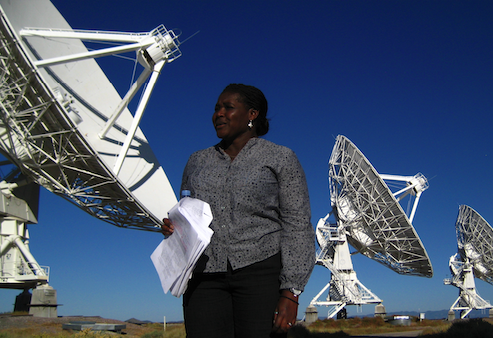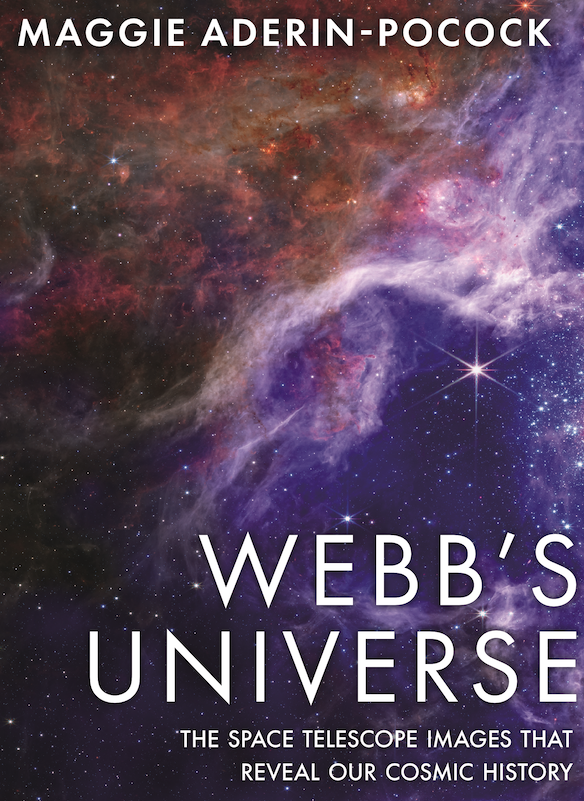Dame Maggie Aderin-Pocock: ‘We need hands on experiments back in the classroom'
Former LSU pupil stargazed through homemade telescope on Hampstead Heath
Friday, 30th August 2024 — By Caitlin Maskell

Dame Maggie [Pic: BBC Sky at Night]
DAME Maggie Aderin-Pocock – scientist, TV presenter, educator and author – estimates she has spoken to more than half a million people about space during an already extraordinary 20-year career that has seen her work at the forefront of scientific research, including on the internationally-renowned James Webb telescope.
But her interest in space began on Hampstead Heath when as a young schoolgirl she would gaze up at the celestial delights through a telescope she made at home.
Now a star of the BBC’s Sky at Night show, she recalled how she spent her evenings grinding and polishing the telescope’s mirror while watching Star Trek at her family home in Heath Street, Hampstead, just above the old Pizza Express restaurant that her father managed.
She went to 13 schools before settling at La Sainte Union in Highgate Road where she took her GCSEs then, at LaSWAP, A-levels.
She said: “My science teacher at LSU was excellent. He was called Mr Anthony Vesty and he made the science lessons a voyage of discovery.
“He’d set up experiments but wouldn’t tell us what the answer was. So, when we were doing the experiments it was like we were making a discovery for the first time, getting that eureka moment, really making the science come to life.
“He was a brilliant science teacher.
“Most of the schools I went to were all-girls’ schools and there is quite a bit of evidence to show that girls are more likely to go into science if they do study at girls’ schools.
“Speaking to fellow scientists, many of them went to all-girls’ schools as well so I think it did make quite a difference back then.”
After her secondary education, Dame Maggie went on to study physics at Imperial University.
“When I went to Imperial the physics cohort was around 200 and I think 5 per cent were women and there was only one other black person and he was a man,” she said. “There is more diversity now, but not enough really, it doesn’t reflect society quite yet, but it’s moving in the right direction.
“That’s why I do quite a bit of science engagement in public, going out and speaking to people, people sometimes say you have to ‘see it to be it’ and so it’s about trying to promote role models especially with space and astronomy. Every culture
across the world has looked at the night sky and wondered. Maybe we can use the heritage of all of us to get those messages out there.
“Over the past 20 years I’ve spoken to over half a million people, many of them school kids. I like to speak to everyone but particularly show there are female role models.
“It’s about showing people that these subjects are for everyone. When I was growing up I thought space and astronomy was done by white guys dressed in togas because that’s all you heard about, the Romans, the Greeks, but it’s just so much bigger than that.
“I think that’s one of the things Star Trek gave me, that all these people all over the universe can work together, including aliens like Spock. I just loved that, it transcended the artificial barriers that we create here on Earth.”

[Pic supplied by BBC Sky at Night]
Dame Maggie secured a PhD in engineering and worked with landmines for the Ministry of Defence and was among 10,000 scientists involved in the James Webb telescope programme that is beaming back incredible images from the dawn of the universe.
“James Webb was a dominating force in terms of spacial astronomy,” she said. “We’d had the Hubble telescope in space getting amazing data which changed our understanding about the universe but Hubble is mainly a visible light telescope and with the James Webb telescope it could use infrared to reveal a lot more about the universe and answer some of those questions that the Hubble telescope had thrown up.”
She is also an author, and her most recent book, Webb’s Universe: The Space Telescope Images That Reveal Our Cosmic History, looks at images the James Webb telescope has taken alongside a detailed commentary, discussing the knowledge we have of space and how different people have interpreted space throughout time to now with the James Webb telescope.
Dame Maggie is also a lead presenter on the BBC’s stargazing TV show, The Sky At Night, which she said makes science more accessible to multiple audiences.
While being an advocate for STEAM, Dame Maggie said that more still needed to be done in schools at curriculum level to ensure students are still inspired to take up science subjects and careers.
She said: “We need creativity in science, revolutionary ideas, pushing the boundaries and thinking differently. We want people to be thinking outside the box.
“What else can we do with an equation rather than just learning it and I think a lot of that comes from hands-on experiments, which especially since Covid we’ve been phasing out of schools.
“I think we need to bring those back.
“When you speak to many people about what science lessons you most remember at school it was mixing chemicals or dissecting something. It’s those hands-on things that really stick in people’s minds.
“We also need to give kids more leeway. Mr Vesty allowed us to investigate and do experiments our way and come to our own conclusions. I think we need more of that rather than ticking the box saying you’ve learnt this, OK let’s move on.
“We need space in the curriculum for kids to thrive and really explore.”
